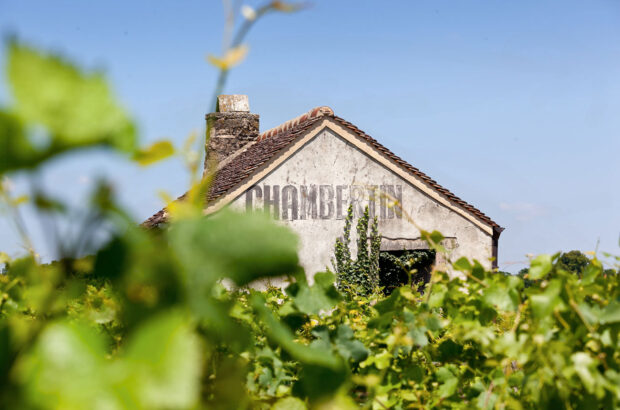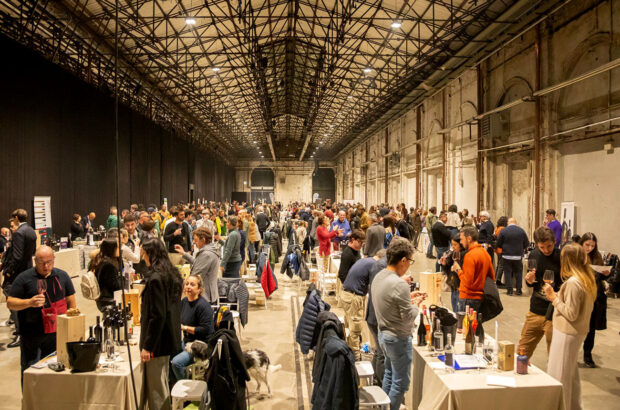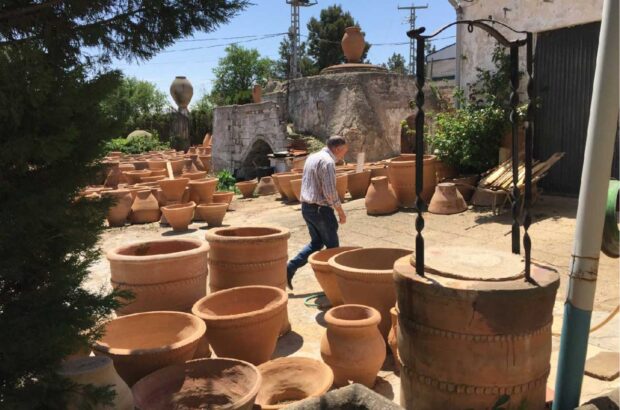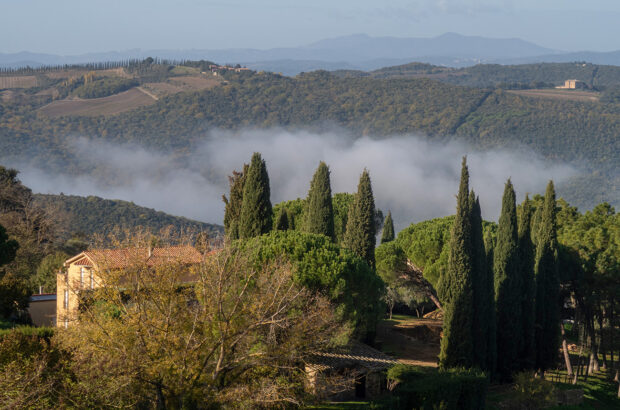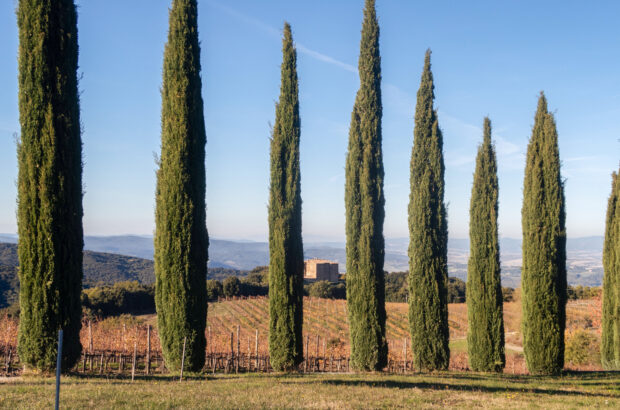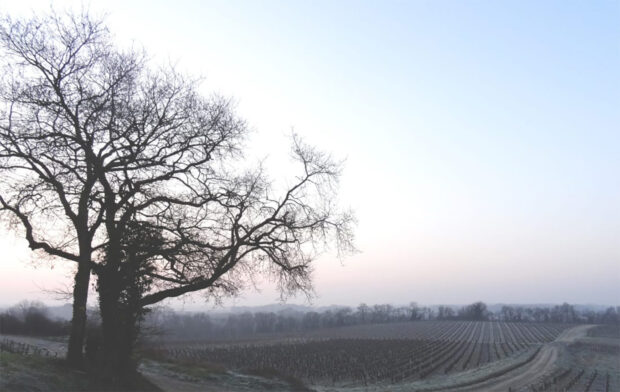Like a language, wine must be learned; theoretically, anyone can master the lexicon if they apply themselves. But wine as a subject also encompasses history, culture, science, even certain religions.
For aspiring sommeliers – or anyone with the desire to work in wine – growing up in a Western society, where wine is culturally accepted, makes pursuing these careers easier. For the language of wine was written in English and European romance languages. Even tasting notes reflect the shared experience of Western food, from fruits to spices.
So, how does an aspiring sommelier hailing from a non-traditional, even non-existent wine culture – or a family, society or religion that disapproves of alcohol – get their start? And how do they compete with their peers born with the advantage of origin?
Nutawan Jumpanak
Chief sommelier at Anantara Hotels, Bangkok, Thailand
From Chaiyaphum province, Thailand

Waterfalls, rice paddies and mountains fill the vistas of Chaiyaphum province in central northeastern Thailand where Nutawan (Nuch) grew up. Nuch’s upbringing in this small region on the western edge of the larger zone of Isan, known for its spicy cuisine, never included wine.
In 2004, Nuch graduated from high school and moved to Bangkok to work as a bartender at the Bangkok Marriott Resort and Spa (now the Antara Riverside Bangkok Resort). She practised communicating in English by reading the back label of wine bottles on the job. ‘When I first started working in hospitality, especially in a bar, my family did not approve. Where I come from, people get intoxicated on cheap, locally distilled spirits; a woman working in a bar was seen as a bad girl,’ she describes. ‘It just wasn’t the norm for a woman from the countryside.’
In 2011, Nuch relocated to the US for a job with Disney Cruises. Then in 2012, the beverage manager noticed her interest in wine and asked if she’d like to train as a sommelier.
‘I said yes! I was handed a book called The Wine Bible, by Karen MacNeil. I will never forget the manager saying that if I was willing to put in the time, I could make it. I read that book over and over,’ she says.
Nuch stayed with Disney for seven years, earning her Certified Sommelier Certificate with the Court of Master Sommeliers in 2017. The following year she returned to Thailand to run the distinguished wine programme at Soneva Kiri. Peers encouraged her to enter Thailand’s Best Sommelier Competition and, in 2019, Nuch became the first female sommelier to earn the prestigious accolade, also winning the competition’s Chile Wine Trophy award that same year.
Despite the litany of accolades, Nuch’s path wasn’t easy. ‘Wine has a unique language, and English is not my first language. I had to work hard to get promoted,’ she says.
In 2020, Nuch joined Minor Hotels’ Bangkok flagship Anantara Siam Bangkok Hotel as ‘head wine guru’ and in 2022 was promoted to chief sommelier for Anantara’s three Bangkok hotels, where she runs one of the most dynamic wine programs in the city.
When Nuch started her journey, people told her that ‘grapes don’t grow in Thailand’. Today, she’s proud to carry a Thai wine on her list: GranMonte’s Anantara Private Cellar Selection Chenin Blanc from Khao Yai.
Jade Hufford
Co-owner of Maison Healdsburg, California
From Navajo Nation, Arizona

‘Neither alcohol nor wine were part of my family,’ says Jade Hufford of her youth. She grew up in a Latter-day Saint family, also known as Mormon, on the Navajo Nation reservation in Arizona. In essence, a dry religion in a dry community. ‘Because of alcohol’s forbidden status, it was taboo and associated with alcoholism, which is rampant on the reservation. We had a word for those who over-indulged: glanii,’ she explains.
Nevertheless, early exposure to the hospitality industry propelled her towards a career in wine. Jade’s family owned a small restaurant on the reservation called Amigo Cafe. ‘It became a destination for travellers visiting nearby Monument Valley,’ she says.
In 2009, Jade worked in fine-dining restaurant Kai at the Sheraton Grand at Wild Horse Pass resort on the Pima/Maricopa reservation in Chandler, Arizona. While there, she met her future husband and business partner Evan Hufford. ‘Kai holds a special place in my heart,’ reminisces Jade. At Kai, she learned to view service through the lens of the guest while being introduced to the vast world of beverages. ‘This laid the foundation for my obsession with craft cocktails and, eventually, wine.’
Jade’s ambition grew bigger than local opportunities could support, so she and Evan decided to relocate. ‘One of the hardest things I’ve done is leave my family,’ she explains. ‘Togetherness is important in Navajo culture, not only culturally but religiously.’
After a brief stint in Las Vegas, the couple crossed the border to California and settled in San Francisco in 2013. Jade landed enviable restaurant roles, first as a captain [equivalent to a head waiter] at one-star Michelin restaurant Michael Mina, then later at two-star (now three) Atelier Crenn. In 2015, she heard about a project in Healdsburg, Sonoma County, called SingleThread Farms. The couple drove north to meet Kyle Connaughton, the chef who had set up this farm/restaurant/inn with his wife Katina. Jade eventually moved to wine country, accepting a role as a captain at the nascent yet visionary restaurant. ‘I was heavily involved in wine service and studied the daily pairings, so I knew them as well as the sommelier team,’ she says.
Jade chipped away at her wine knowledge, though at times it felt like a Sisyphean task. ‘My schooling on the reservation did not give me the skills to absorb wine knowledge as easily as others,’ she explains. After she moved to Sonoma County, everything clicked. ‘Once I started meeting winemakers, hearing them talk about processes, driving through vineyards, understanding wine became easier. No longer abstract, it turned into real places and people.’
In 2020, Jade and Evan decided to plant the seed they’d carried since Kai: to open their own wine bar. After some bureaucratic delay Maison wine bar in Healdsburg is slated to open in early summer 2023. ‘I love making connections. I love building experiences,’ she enthuses. ‘I love sharing the unique stories of each producer and vineyard and making the bottle come to life for my guests.’
Arunkumar Tamilselvan
Food and beverage manager, Anantara Kihavah, Maldives
From Tamil Nadu, India
‘Most Indian parents want their kids to become doctors or engineers,’ says Arunkumar (Arun) Tamilselvan of his upbringing as a vegetarian from a zero-alcohol, southern Indian family in Tamil Nadu. ‘Early in my career, my parents were unfamiliar with hospitality as an industry, so I told them I had a bar job. Well, that turned into a conversation about health and drinking,’ he recalls. ‘Local customs considered alcohol a sin.’
Arun had his first professional exposure to wine in 2012. Working as a bartender at Six Senses Laamu Maldives, the company paid for beverage staff to do the Wine & Spirit Education Trust (WSET) Level 2 Award in Wines for career development. Arun was hooked.
‘My close friends say I’m completely different when I talk about wine,’ he says. ‘Learning about a drink that’s completely foreign to your early world view, however, took time.’
Arun had the passion and commitment, but says he struggled to understand the traditions and cultural reasons behind wine. ‘The wine vocabulary, village names, European regions, even grape varieties were all foreign to me,’ he explains. He spent four months with a mentor working daily to review material. He’s since passed his Level 4 Diploma with aplomb, and is currently
a WSET Certified Wine Educator, with an eye towards earning his Master of Wine credentials.
Despite his aptitude and persistence, Arun encountered resistance to promotions. ‘Once, I was openly told that the head sommelier role was reserved for Europeans, even though, in their words, I was “capable of running the operation”,’ he says.
‘Generally, wine professionals from non- traditional, non-Western backgrounds need better references and better academic credentials, yet get minimum pay and are expected to work longer hours than their European peers,’ he reveals. What hurt most, however, was his career being thought of as a ‘secondary option’ in his home country of India.
Ultimately, Arun’s dedication paid off. He found teaching wine became the ultimate learning tool. After building an employment relationship with Minor Hotels, Arun has gone on to train and certify 200 of the hotel’s students in the Maldives and Thailand.
As food and beverage manager and ‘senior wine guru’ at Anantara Kihavah Maldives, he manages seven restaurants at the resort and runs one of the republic’s top wine cellars, with more than 450 labels from 17 countries, and has been given complete freedom to design and execute the wine program.
A dream job in the eyes of many. ‘Wine taught me to be humble and be trustworthy, so my guests believe in my wine suggestions, and I ensure they have a wonderful experience.’
Ahmed Ali
Head sommelier, Waldorf Astoria Maldives Ithaafushi
From Kulhudhuffushi, Maldives
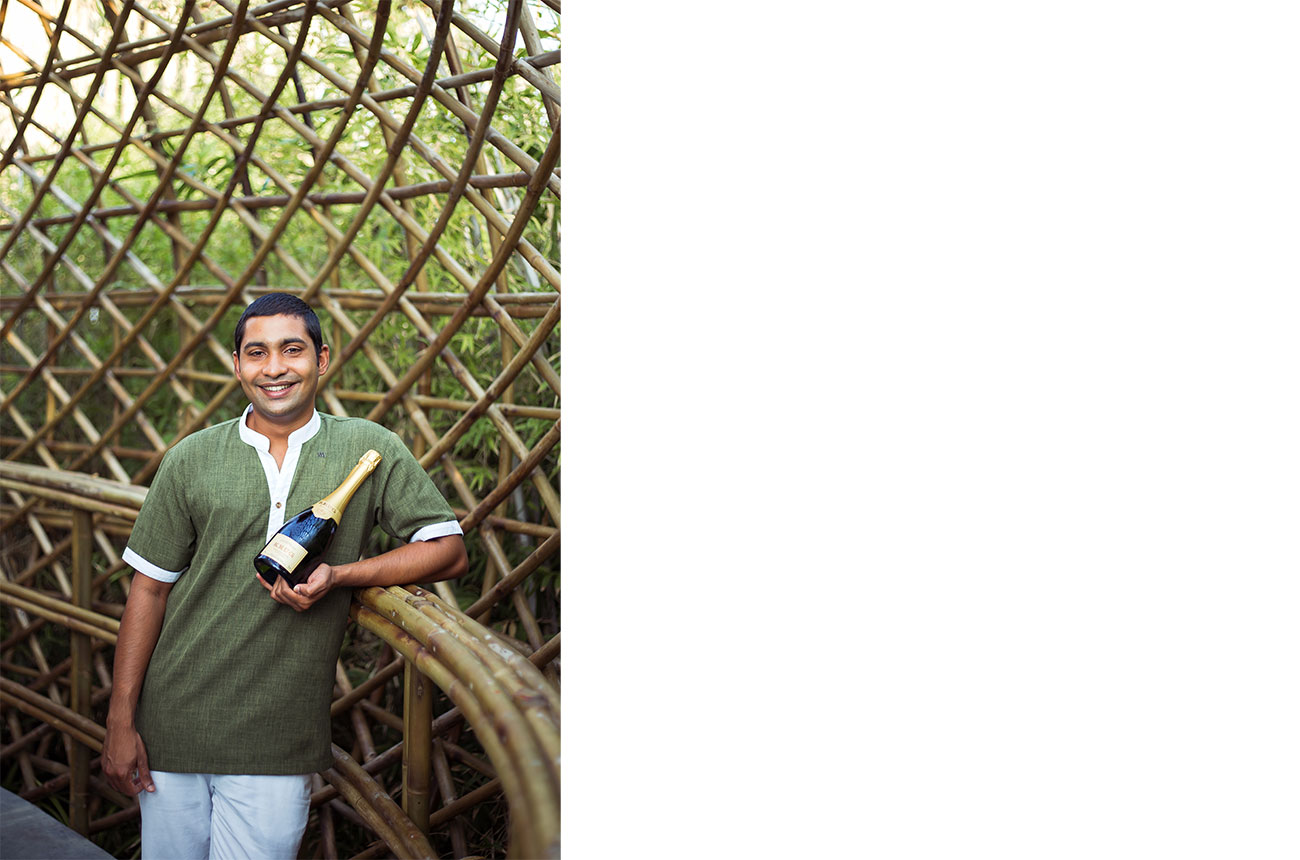
The Republic of Maldives has a complicated relationship with alcohol. It is a dry Islamic nation yet is eager to promote tourism, and this has led to allowances for hotels and resorts to sell wine and spirits to foreigners. In the past, Maldivians were restricted from working in the alcoholic beverage arm of hospitality, making it difficult for young people to pursue a career in wine. However, the laws have since relaxed and today there is an unofficial estimate that 80% of sommeliers working in the Maldives hail from the country.
Ahmed Ali grew up on the island of Kulhudhuffushi. The surrounding ocean glows like fire inside a tourmaline. It’s these very waters kissing the mangroves, palm trees and fine sand beaches that bring affluent travellers around the world to relax and enjoy fine food and wine.
Ahmed began his hospitality career as a bell attendant at One & Only Reethi Rah Maldives in 2009. Work inevitably exposed him to the food and beverage side of the resort. Curious about the industry, he inquired about opportunities at Tapasake, the hotel’s Japanese fusion restaurant. The manager at the time suggested a month-long apprenticeship.
‘I learnt basic food and beverage service plus the entire menu and how to explain it to guests,’ he says. Impressed, the manager hired him as a waiter.
Ahmed’s journey with wine began in 2011. That year he met Sunny Chuang, considered by Ahmed to be one of the greatest sommeliers working in the Maldives tourism industry. Chuang taught tasting techniques and how to identify differences between grapes and styles. Within four years of starting at One & Only, Ahmed had passed his WSET Level 2 Award with distinction.
In 2013, Ahmed moved to Velaa Private Island – a resort regarded for its wine programme – as assistant restaurant manager of fine-dining restaurant Aragu. While there, he completed his WSET Level 3 Award. His top marks earned him a trip to Europe sponsored by the resort.
‘I visited the famous domaines of Burgundy, such as Comtes Lafon, Joseph Drouhin and Romanée-Conti,’ he recalls, ‘as well as noble Champagne houses like Krug, Dom Pérignon and Salon.’
After several other posts, Ahmed joined the Waldorf Astoria Maldives Ithaafushi for its pre-opening in 2019 as restaurant manager of treetop venue Terra and manager of the extensive wine cellar at food-and-wine-pairing dining room, The Rock.
Despite his professional success, Ahmed’s parents remained sceptical. ‘I was raised in a very conservative Maldivian society,’ he explains. ‘My family is not in favour of my career in wine. Only my younger brother Adam, who also works in tourism, understands.’
Racial stereotyping also plagued his progress. ‘As an Asian from a non-traditional wine background, we have to work harder as it is assumed we have less knowledge, less appeal and less experience than Caucasians,’ he says. Ahmed even experienced the phenomenon at wineries during professional visits. ‘At first, when they see a group of South Asians, they aren’t enthusiastic. Fortunately, that perception changed over the course of our visit.’
In 2020, the resort promoted Ahmed to chief sommelier, and he remains there today, presiding over one of the country’s best wine programmes.
Alvin Gho
Co-founder and director of Wine RVLT, Singapore
From Singapore
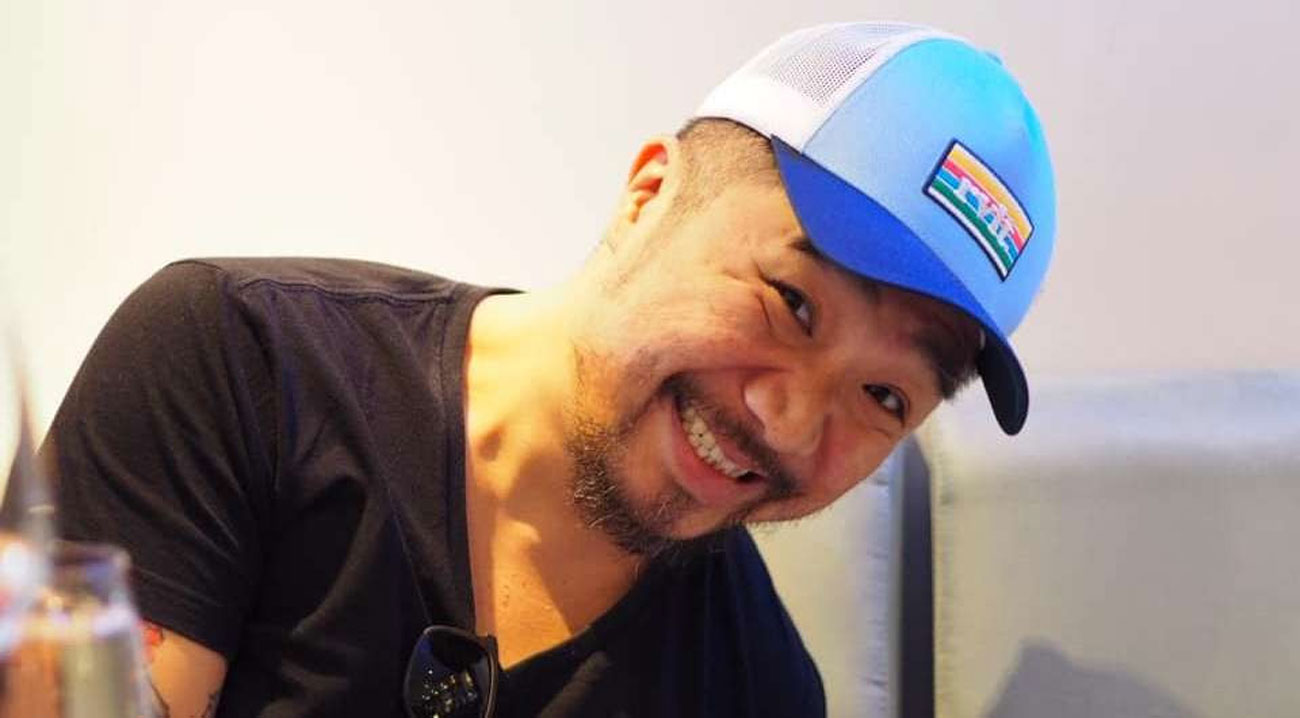
In 2016, Alvin Gho started a wine bar in Singapore called Wine RVLT. Short for revolution, the name lends a subtextual nod to the rebelliousness of joining an industry that his mother, and birth city-state, long viewed as a sin.
‘I grew up with my mom telling me that drinking is bad and only bad kids drink,’ says Alvin. ‘Singapore has always categorised alcohol with tobacco and gambling, and has a firm stand about the negative influences of alcohol on society.’
In Alvin’s youth, his family and community saw wine (if they considered it at all) as a middle- to upper-class drink for Westerners. ‘The country had a drinking culture, but it was mainly beers and brandies. My dad’s side of the family drank copiously, whereas my mom’s side were practically teetotallers. I guess I must have been quite conflicted growing up,’ he muses. To Alvin, wine seemed foreign – a drink made elsewhere by other people for other people.
In 1999, while at high school, he enrolled in a three-year programme to earn a diploma in hospitality management at a local polytechnic. This gave him an initial taster of the world of wine, but it would be several more years before Alvin immersed himself more fully.
While working at the Singapore branch of Morton’s The Steakhouse in 2007, his employer sent him to earn an Introductory Sommelier Certificate from the Court of Master Sommeliers (CMS), then promoted him to a role in wine. In 2009, Alvin got his big break: a job as a sommelier at Raffles Hotel, famed as the birthplace of the Singapore Sling cocktail. ‘This was a childhood dream,’ he recalls. ‘Raffles was the pinnacle of a Singaporean’s career.’
Alvin went on to achieve his CMS Advanced Certificate in 2012, win two national sommelier competitions, and represent Singapore internationally several times between 2012 and 2018. Eventually, he had to explain his career path to his family. ‘It was awkward,’ he says. ‘They had no idea what a sommelier was. My grandad and I had a difficult conversation. They were worried about me becoming an alcoholic.’
Alvin’s career eventually took him to Shanghai to work for the arts, dining and entertainment complex Three on the Bund. Since Asians were the majority in China, he didn’t have to compete with Westerners for wine jobs.
‘Things got interesting when I joined Marina Bay Sands, where they hire expats,’ he says, following his return to Singapore in 2014. ‘I was not privy to remuneration information, though rumour had it that certain European or American sommeliers in the same job grade made way more money than I did, despite me being local and understanding the local people and languages, as well as having higher sommelier qualifications and winning competitions,’ he says.
His only proof, however, was rejection for a promotion he requested after driving financial improvements in the beverage programme over three years. It was the catalyst to start his own venture and, in late 2016, Alvin co-founded Wine RVLT with business partner Ian Lim. He also made the decision to move away from his professional goal to become a Master Sommelier by 2020.
‘In 2019, I struggled with my emotional and mental health trying to juggle a new business, a new relationship and ongoing consultancy work while trying to pass the exam,’ he says. ‘During the lockdowns and life scares, my priorities changed.
‘My career path now is to show the world that wine is a beautiful alcoholic beverage with much to revere and discover, and it should be enjoyed and taken with pleasure.’






